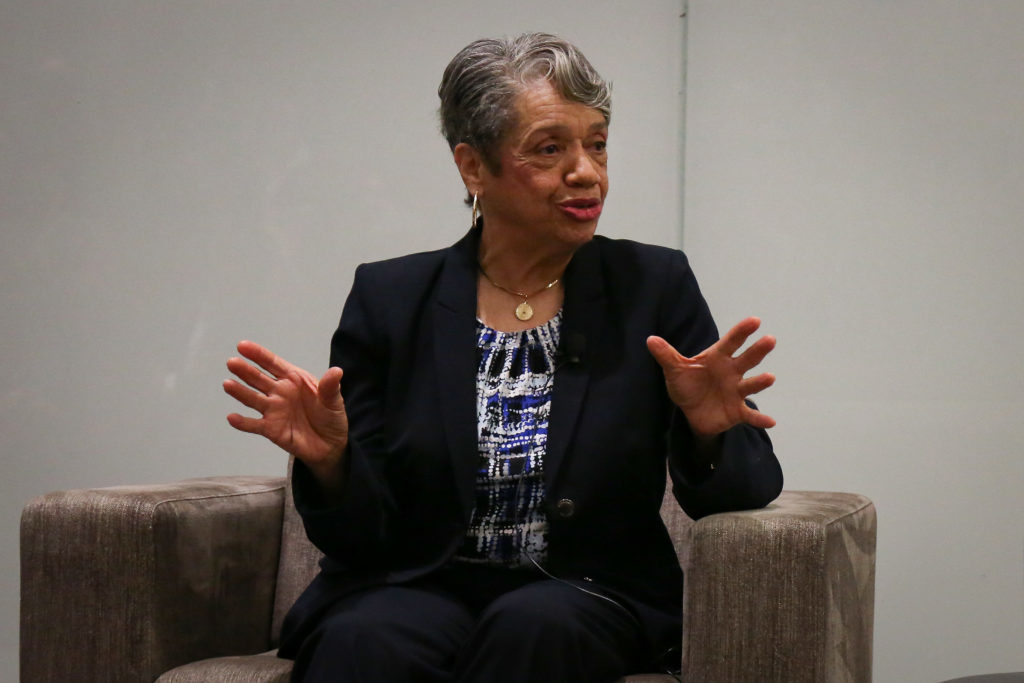After graduating from GW decades ago, Christine Darden returned Tuesday evening to discuss the movie “Hidden Figures” – a film she was one of the inspirations behind.
The 75-year-old, who graduated in 1983 with a Ph.D in engineering, worked at NASA conducting research on the U.S. space program directly after the time period that the film features. Darden discussed her career, motivations and females in engineering, after the film was screened in the Science and Engineering Hall.
The film screening and Q&A session was hosted by the GW Deans’ Council of Women in Technology to celebrate both Engineers Week and Black History Month.
Called “human computers,” the movie showcases the intense work of three black women who helped astronaut John Glenn beat Russia in the Space Race in 1962. After going unacknowledged and facing racial and sexist discrimination, the trio worked tirelessly to send him off and finally receive recognition for all their efforts.
Tuesday was the 56th anniversary of the day John Glenn became the third American in space. But Darden is still a hidden figure.
Although she was not working at NASA at the time and wasn’t referenced in the movie, she was consulted by the film’s writer and is a key character in the book, “Hidden Figures: The Untold Story of Four Black Women and the Space Race” – which the movie is based on.
Darden said because she is a generation younger than the other engineers, she didn’t face the same discrimination depicted in the movie. But she talked about the progress black females made in three decades of working at NASA and the prejudice she faced.
Darden didn’t experience much discrimination, but she recounted a time where a male engineer doubted and laughed at her for being wrong. But when she revisited his calculations, she proved he was the wrong one.
“That really got me,” Darden said.
Darden said she also found out – through the book – that Mary Jackson, one of the three women featured in the film, advocated for Darden to receive a promotion and told her boss that coworkers with the same ability had received promotions faster than her.
Although she found strong support from other black women at NASA, she said she also made other valuable connections with the men that worked there.
“I found that a lot of my supervisors or males that I talked to gave very good advice that I needed to listen to,” she said. “They weren’t necessarily mentors, but they gave advice to me about my career.”
Darden, who is retired now, said that after 40 years at NASA and leading research about the sonic boom, her legacy remains. The modifications she made with her team to F-5 military plans were able to make the planes fly faster, and these revelations could get people from D.C. to California in two and a half hours instead of five. The project received funding last year, and should take off in 2021.
Darden added that her childhood piqued her interest in engineering. Instead of playing with her dolls, she would take them apart to see why they were talking. She grew up helping her dad work on their car and often played with the boys in the neighborhood, she said.
At the panel in SEH, Darden said she was impressed with the number of women in the engineering program at GW. The former NASA scientist, who is an advocate for females in the STEM field, said she encourages parents to expose their daughters to these careers at a young age.
“Learn as much as you can and be valuable to somebody. They will accept you much more readily if you’re doing something that they really need and want,” she said. “Don’t let people push you out of the way. You need to speak up.”





